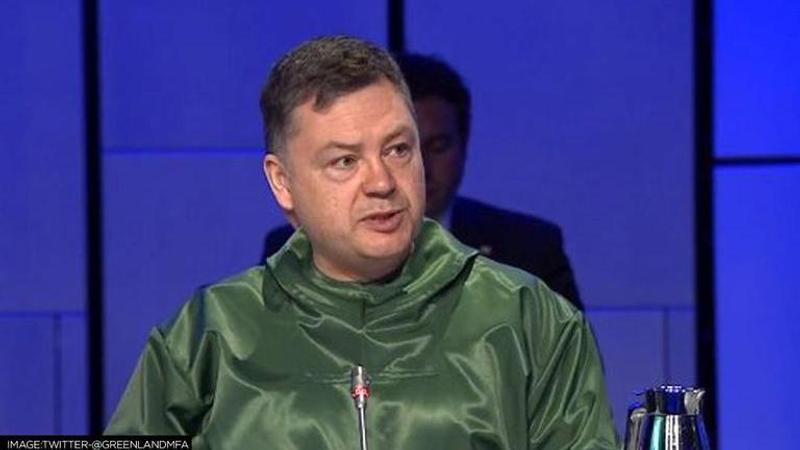Published 18:39 IST, September 29th 2021
Greenland's Foreign Minister shunted after 'Inuit-Only Independence Referendum' remark
Broberg stated that any future referendum on independence should be limited to Inuits, who make up more than 90% of Greenland's 56,000 residents.

Greenland Foreign Minister Pele Broberg has been fired on September 27 over his 'Inuit-Only Independence Referendum' remark on the Arctic territory's independence from Denmark. After a contentious interview by the Minister of the Autonomous Arctic area, Prime Minister Mute Egede, who favours autonomy but not independence, stated the ruling coalition has agreed to a reshuffle. Broberg has been named Minister of Business and Trade, while Egede has been named Minister of Foreign Affairs.
Taking a dig at Broberg, the Prime Minister, who took power in April after a snap election, emphasised that "all residents in Greenland have equal rights." In an interview with Berlingske, Broberg stated that any future referendum on independence should be limited to Inuits, who make up more than 90% of Greenland's 56,000 residents.
He had stated, "The aim is not to let people who colonised the country to decide whether or not they may stay."
In the same interview, he expressed opposition to the term "Community of the Kingdom," which officially refers to Denmark, the Faroe Islands, and Greenland, claiming that his country has "nothing to do" with Denmark.
Greenland was a Danish colony till 1953
Greenland, the largest island in the world, was a Danish colony until 1953, when it was granted semi-autonomy in 1979, after gaining home rule. Since then, various pro-independence parties have raised their voices in support of full independence. The Arctic territory continues to rely heavily on Copenhagen's subsidies, which amount to over 526 million euros ($638 million) and account for roughly a third of its budget. But, as indicated by former US President Donald Trump's abruptly rejected request to buy it in 2019. Its geostrategic location in the Arctic, as well as enormous mineral riches whose production has been delayed by a lack of infrastructure, have bolstered its chances of independence.
Greenland wants to expand its economy by developing its fishing, mining, and tourist industries, as well as agriculture in the southern half of the island, which is ice-free year-round after Mute Egede won the election in April by campaigning against a controversial uranium mining project.
(Image: GreenlandMFA/Twitter)
(With inputs from Berlingske)
Updated 18:39 IST, September 29th 2021




